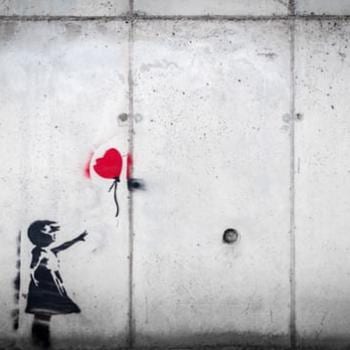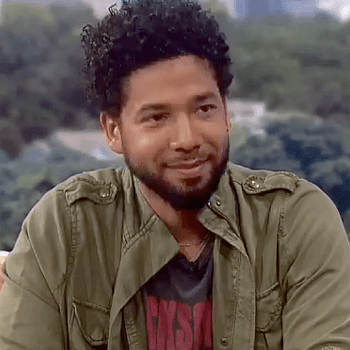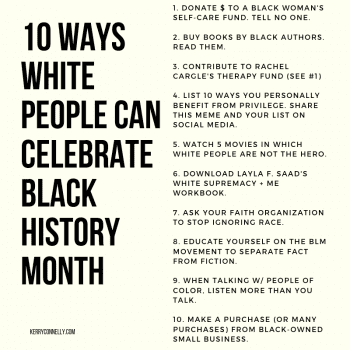Last night, I got some bad news. Someone I once knew, briefly, is dead.
Leander was a most likely a gang member, just seventeen when he died, carrying a loaded weapon — one that he never used — to a back to school party. Perhaps he knew he was being targeted.
A few years ago, I had the distinct honor and privilege to help lead a group of volunteers from my church in a mentoring program. The kids, who were all on probation for pretty heavy stuff — muggings, car theft, and in once case, what boils down to murder — ranged from about fourteen to seventeen and were all from Jersey City. The courts mandated them into the program, which would bus them from their usual neighborhood to the Newark YMCA, where they would spend the bulk of their high incident hours: 3pm – 9pm.
These kids had a four-block world view — they’d rarely been past the 4 square blocks between their home and their school, and those were dangerous roads indeed. Memorials to the fallen stood along their daily routes, and the only male role models were either in prison or sitting on the corner, working their street business. Poverty and the prison pipeline had insured this.
Most of these kids didn’t think they’d live past the age of eighteen, and they lived accordingly. When you think you’ve only got a few more years left on this earth, you don’t dream about going to college. You don’t think about a career. Maybe you think about basketball and sneakers and think maybe that could be me, but mostly you know it’s not going to happen, so you just put your colors on and keep going.
We were sitting in a group session once, and one of the kids — one of my favorites, who had a smile that pushed up his cheeks and lit up his eyes with brightness — said in frustration, I don’t want to be in a gang, but my mother’s been dressing me in gang colors since I was a baby, so what am I supposed to do?
He was maybe fifteen, tops. I don’t know about you, but I wasn’t of strong moral character when I was fifteen. I don’t think when I was fifteen, I would have been brave enough to leave the gang I’d been born into, with all the ramifications of what that entailed.
I spent a few days hating his mother for that, berating her for doing that to her kid. But then I realized — she was doing the most maternal thing in the world. When you live in a war zone, of course you dress your kid for battle. It’s the only way to keep him alive. You mark your child for your tribe, because there is safety in numbers.
I do the same thing — it’s just that my tribe wears Gap.
Running that mentoring program was hard, and I pretty much sucked at it. Administratively we were running up against time and organizational chaos, because these kids lived in chaos and have you ever tried to organize that shit? The kind of chaos that comes from when your best friend gets shot so you just want to hide out for a little while, so you don’t get on the bus to go to your program?
Or the kind of chaos where when you have emotional problems that maybe have gone undiagnosed or at least untreated and your mother, who probably is also undiagnosed or at least untreated, tells you that you can sleep in your home, but there’s no way she’s feeding you? And so sometimes you show up and sometimes you don’t, and sometimes your mentor gets pissed because you didn’t show up when they took time away from their family to come see you…
We only had about 16 weeks with these kids. It took the first 10 or so the break through their walls. The first 10 for them to realize that we weren’t going away, no matter how rude they were, or how much they tried to shock the church people with curse words (ha! If only they knew who I am!).
Then, just about when the walls started coming down, they’d be told their time was almost up. And they’d retreat again behind their swagger and stoicism, their curse words.
But you’d still see their souls in their eyes, and they were the souls of children.
The first time I ever encountered them, they came to my church’s conference room where I was going to run an ill-planned program for them. (I, in my privilege, never thought about the fact that many of them probably couldn’t read, having been failed by dysfunctional family and educational systems alike.)
I remember watching them get out of the van and thinking to myself, Holy Shit, what the fuck did I get myself into?
They looked like everything the media teaches us to fear. They swaggered and hitched up low slung pants and lifted their defiant chins to meet my gaze from beneath their hoodies. I tried to smile and not show how nervous I was.
As time went on, I got to see these kids for who they were — children in growing bodies. I got to see the soul inside them. I got to see the sweetness in how they put on their best shirts for those days the program brought them to church. I got to learn their interests — they wanted to design sneakers, or study Greek mythology, or become a chef.
Most of all, I got to see their souls — little glimpses of them. I got to see how the streets could steal those souls. With every crime committed, every mugging or murder, a little bit of these kids souls got fractured. Yes, even when they committed the crime. Because here’s something I never knew, that they taught me: very often, these kids commit crime under threat of violence to themselves or their families. They don’t necessarily want this for themselves. They are forced into it. At a very young age.
Kids were constantly being ripped out of the program by their probation officers because the pipeline was so full, and there were only so many seats on the bus. Literally. The bus that picked the kids up only had 14 seats on it. As soon as a kid started doing well, probation grabbed them out to put someone else in.
Eventually, some of our mentors got mad at my co-leader and me, because they felt we were not doing a good job of running the chaos. They sent me a nasty letter or two and quit. Shortly thereafter, I left my job at the church. I didn’t see the kids anymore.
I have no idea if anything we did for those kids stuck, or if we just were one more group of people who came into their lives and then left them to their war zone. I pray that something we did mattered to them.
But I know they schooled me. I ran into my co-leader just the other day at the Global Leadership Summit. We greeted each other warmly and talked about how we missed working together. I told him how I missed those kids, about how it had been a life changing experience for me. Mostly, because I will never look at stories like Leander’s the same way again.
In the story of the Good Samaritan, Jesus in his usual way subverts the societal norm. He takes the “other” — the one the Jews would hate, would think was “lesser than”, and elevated him, used him as the illustration of righteousness, of goodness and kindness.
I honestly don’t know if I did anything to help these kids. I honestly don’t. I know I wanted to, I tried to, but in the end, I think they did more for me than I ever did for them. They changed my heart — they broke through the stony lump in my chest and made it melt. They showed me what breaks God’s heart. They showed me their stolen souls, and I am better for knowing them.
I am more righteous now not because of any of my ill-fated attempts to help them, my awkward failure to love them well. I am more righteous for knowing them, for having been schooled by them, for having been allowed, for just the briefest of moments, to see their stolen souls.
I did not know Leander well, but he mattered. I will think of him — of all of them — often. Because they matter.
Rest in peace, Leander. You deserved better than what America gave you.












